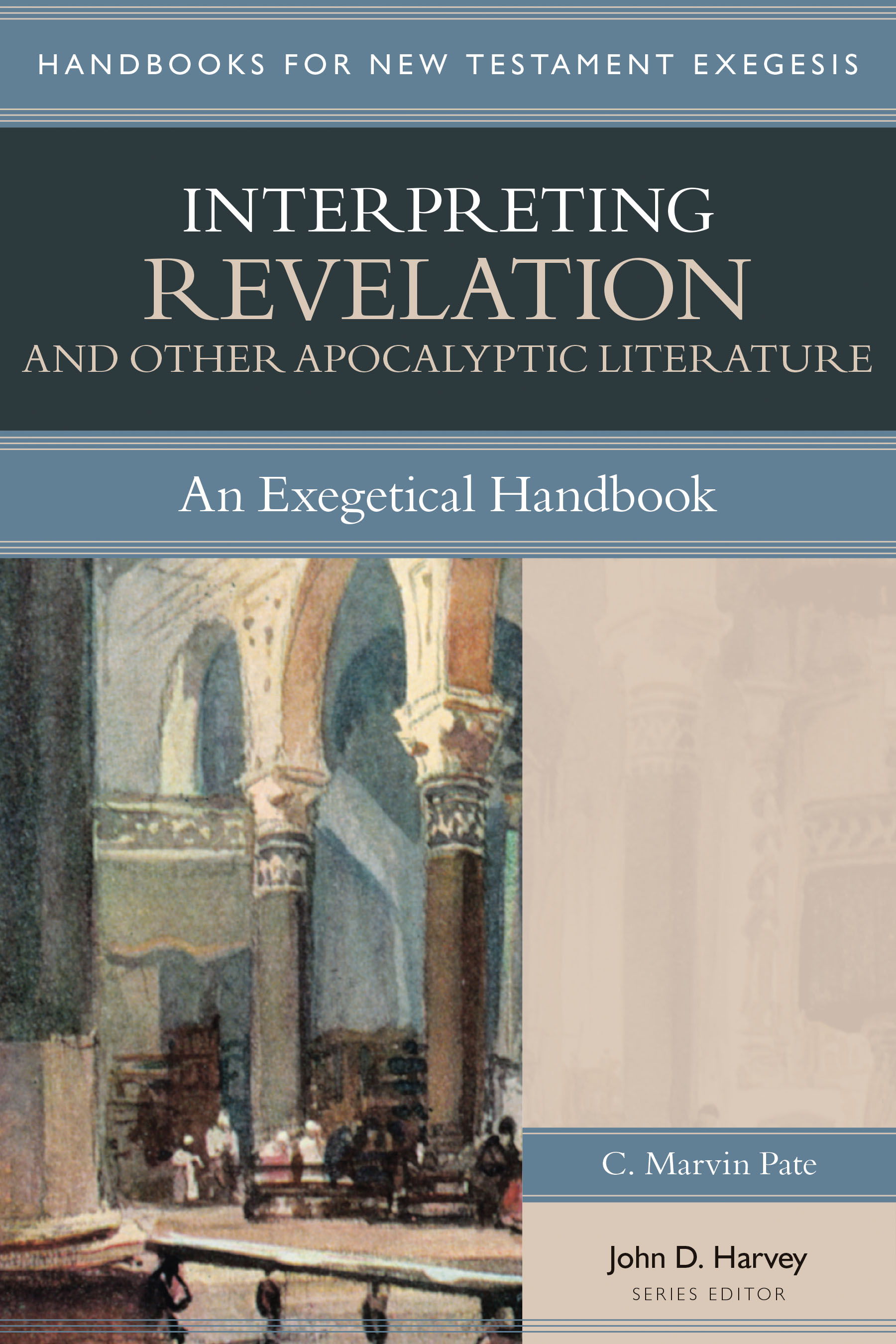One of the only birthday gifts I regret asking for is from the first year I was on Kregel  Academic’s review list. They offered my choice of a book or a coffee mug. I took the mug. I like the mug. But their backlist is nice. Ever since then, I’ve taken the book. Someone’s always giving away coffee cups. You can’t get free theology books on the street. (Well, you can, but I don’t think you want them.) Recently, I reviewed Kregel Academic’s Interpreting Apocalyptic Literature by Richard A. Taylor. Today, we have a stand-alone (but companion-esque) volume from C. Marvin Pate, Interpreting Revelation and other Apocalyptic Literature. Taylor’s is more Old Testament focused while Pate’s is New Testament focused. Book was provided as a birthday gift from Kregel Academic. They like me.They really like me :)
Academic’s review list. They offered my choice of a book or a coffee mug. I took the mug. I like the mug. But their backlist is nice. Ever since then, I’ve taken the book. Someone’s always giving away coffee cups. You can’t get free theology books on the street. (Well, you can, but I don’t think you want them.) Recently, I reviewed Kregel Academic’s Interpreting Apocalyptic Literature by Richard A. Taylor. Today, we have a stand-alone (but companion-esque) volume from C. Marvin Pate, Interpreting Revelation and other Apocalyptic Literature. Taylor’s is more Old Testament focused while Pate’s is New Testament focused. Book was provided as a birthday gift from Kregel Academic. They like me.They really like me :)
As with many generations of Christians, it is common for us to struggle with the book of Revelation in the Bible. The first three chapters appear to be easy, then it gets slightly odd for most of the book, and then comes back to “God wins!” So, we chalk it up to odd prophecy, accept what Uncle Bob said about Revelation, and go on with life. Every now and then, we make a best-seller out of the latest possible application of the text and then, when the times change again, that one hits the bargain bin and we move on.
What, then, is the best use of the book of Revelation? The first need is that we treat Revelation just like any other Biblical text: interpret it properly, according to genre, text, context, and history. Then we look at how that applies.
Accomplishing that first goal is the aim of C. Marvin Pate’s Interpreting Revelation from Kregel Academic. (Full disclosure: Dr. Pate teaches at Ouachita Baptist University, which is my alma mater. He didn’t teach when I went there, but he does now.) The stated intent is to provide a guide for pastors, teachers, and Bible students to understanding the distinctive content that is apocalyptic literature. The softcover weighs in at 240 pages and has footnotes rather than endnotes, indicating that at least one thing is very right here. (I hate endnotes.)
How does Pate work though this goal? First, he summarizes what the term “apocalyptic literature” means, including noting the SBL definition from 1979. He also addresses books like Revelation and Daniel which mix apocalypse with other genres. Then, he develops the importance of understanding the historical era in which literature of the “end” is written, including pointing to historical events that find their parallels in the prophetic. Note that many of these parallels are used as illustration more than claiming them as fulfillment: the Roman habit of “triumphs” and “arches” would have been well-known, so the imagery borrows well.
Much like how modern preachers might use television or sports as images for material now.
Pate then works through the connections between some apocalyptic passages and areas in the Gospels, and then draws lines between the Old and New Testaments. Those lines then arc forward into the age to come. This is done well. It is worth noting that the book’s perspective trends more toward a “covenant theology” than toward a “dispensational theology,” but has value for either viewpoint. Pate believes in a literal return of Jesus—beyond that, this work provides tools to understand what Scripture says about all of the concurrent events with that return.
Further, though, the real strength is this: how do we live now according to that which is to come? Can we draw anything from Revelation other than “someday, we’re out of here…”? Yes, we can.
Pate’s final chapters address developing messages from Revelation for the church today. He makes points based in wisdom and practicality.
Even if Dr. Pate wasn’t on the faculty of the OBU School of Christian Studies, I’d recommend this book. It’s a good challenge for next-level Biblical interpretation: how do we take the principles and apply them to this type?
I did get this book free, but I gave up a coffee cup for it. So it’s like I paid for it.


No comments:
Post a Comment
To deal with SPAM comments, all comments are moderated. I'm typically willing to post contrary views...but I also only check the list once a day, so if you posted within the last 24 hours, I may not be to it yet.